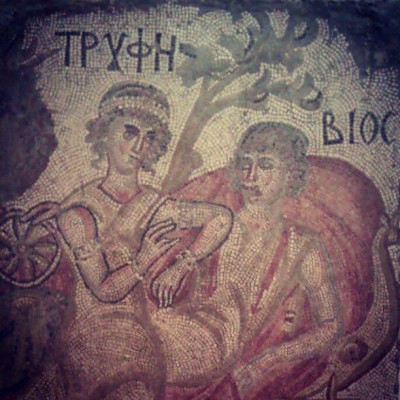from Rachel Blau DuPlessis's Drafts:
Quire:
one-twentieth of a ream.
Poem:
bare ruined quire.
 |
| geranium |
psychomachy — a conflict between the soul and the body; between good and evil
coryphaeus — chorus leader who
delivers lines of verse on behalf of the chorus as a whole
the melancholy of
the English was easily explained by the influence of a maritime
climate, cold, humidity, the instability of the weather; all those
fine droplets of water that penetrated the channels and fibers of the
human body and made it lose its firmness, predisposed it to madness.
. . .
the twelve
dualities that dispute the sovereignty of the human soul: Faith and
Idolatry, Hope and Despair, Charity and Avarice, Chastity and Lust,
Prudence and Folly, Patience and Anger, Gentleness and Harshness,
Concord and Discord, Obedience and Rebellion, Perseverance and
Inconstancy, Fortitude and Cowardice, Humility and Pride . . .
 |
| [Candid Canada] |
[from Erasmus’s
Praise of Folly] Folly’s
companions: "Recognize them here, in the group of my
companions.... She whose brows are drawn is Philautia (Self-Love).
She whom you see laugh with her eyes and applaud with her hands is
Colacia (Flattery). She who seems half asleep is Lethe
(Forgetfulness). She who leans upon her elbows and folds her hands is
Misoponia (Sloth). She who is crowned with roses and anointed with
perfume is Hedonia (Sensuality). She whose eyes wander without seeing
is Anoia (Stupidity). She whose abundant flesh has the hue of flowers
is Tryphe (Indolence). And here among these young women are two gods:
the god of Good Cheer and the god of Deep Sleep."



No comments:
Post a Comment